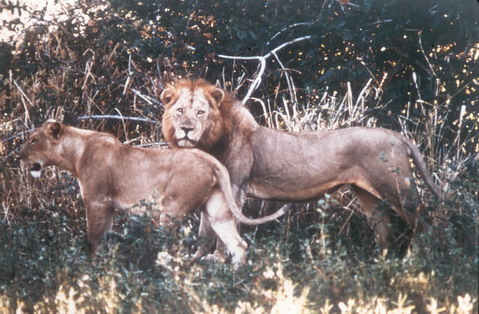I have personally experienced the Luangwa Valley, so I am happy to refer to this post:
Many people have different expectations from a safari to the African continent, some enjoy relaxing in five star accommodation with spas and the latest treatments, with world class dining and fine wines, whilst others want to totally immerse themselves deep in the bush.
Either experience will afford high quality game viewing but the latter most definitely provides a real sense of Africa “unplugged”.
Walking safaris were pioneered in Zambia’s South Luangwa by the renowned Norman Carr over fifty years ago and today his legacy is a small selection of high quality bush camps which are platforms for exciting foot safaris.
Bush camps tend to be much smaller than traditional safari lodges, taking between 6 to 10 guests at a time and more traditional in design with a handful of thatched cottages, usually opening onto a tranquil bend of the Luangwa River.
The key to any safari in Africa is the quality of the guiding and Zambian guides are amongst the very best - taking guests out on foot requires a high level of concentration and sensory perception.
Imagine coming across all of the wildlife you would see from the comfort of your seat in a large 4x4 vehicle, now imagine the same experience on foot. Safety is paramount and the experience is unforgettable.
My very first walking safari in the South Luangwa brought our small group to within 100 feet of a pair of mating leopards!
Zambia’s National Parks are well established - and during the dry season - which runs between May and the end of October, the South Luangwa provides exceptional game viewing.
Large breeding herds of elephant trawl through the mopane forests , along with even larger herds of buffalo. Large prides of lion defend their territories from the local competition and the chances of seeing leopard in the wild are perhaps higher than in any other location in Africa.
Many different species of antelope thrive in Zambia as well as the more unusual Thorneycroft’s Giraffe and Cookson’s Wildebeest.
The Luangwa River supports high concentrations of hippopotamus and as the dry season progresses and the river shrinks, it is not uncommon to see pods of several hundred hippos gathering in the deeper channels.
Strategically placed photographic hides provide exceptional opportunities to get close to these large river horses and observe their behaviour.
Zambia is easily accessible with direct flights from the UK into the capital, Lusaka. A short flight then takes you to the small town of Mfuwe which is the gateway to a safari in the South Luangwa.
And as you make your way to camp, the spectacular beauty of one of Africa’s last true wilderness areas unfolds, drawing you in and holding your imagination captive for the next few days.
If a walking safari in Zambia sounds like the style of safari you would enjoy, make sure you talk with someone who has visited the area and can provide an impartial insight into the best location and camp for you depending on your expectations, as some camps are more rustic than others.
Read the original here:
Sunday, May 2, 2010
Subscribe to:
Comments (Atom)
